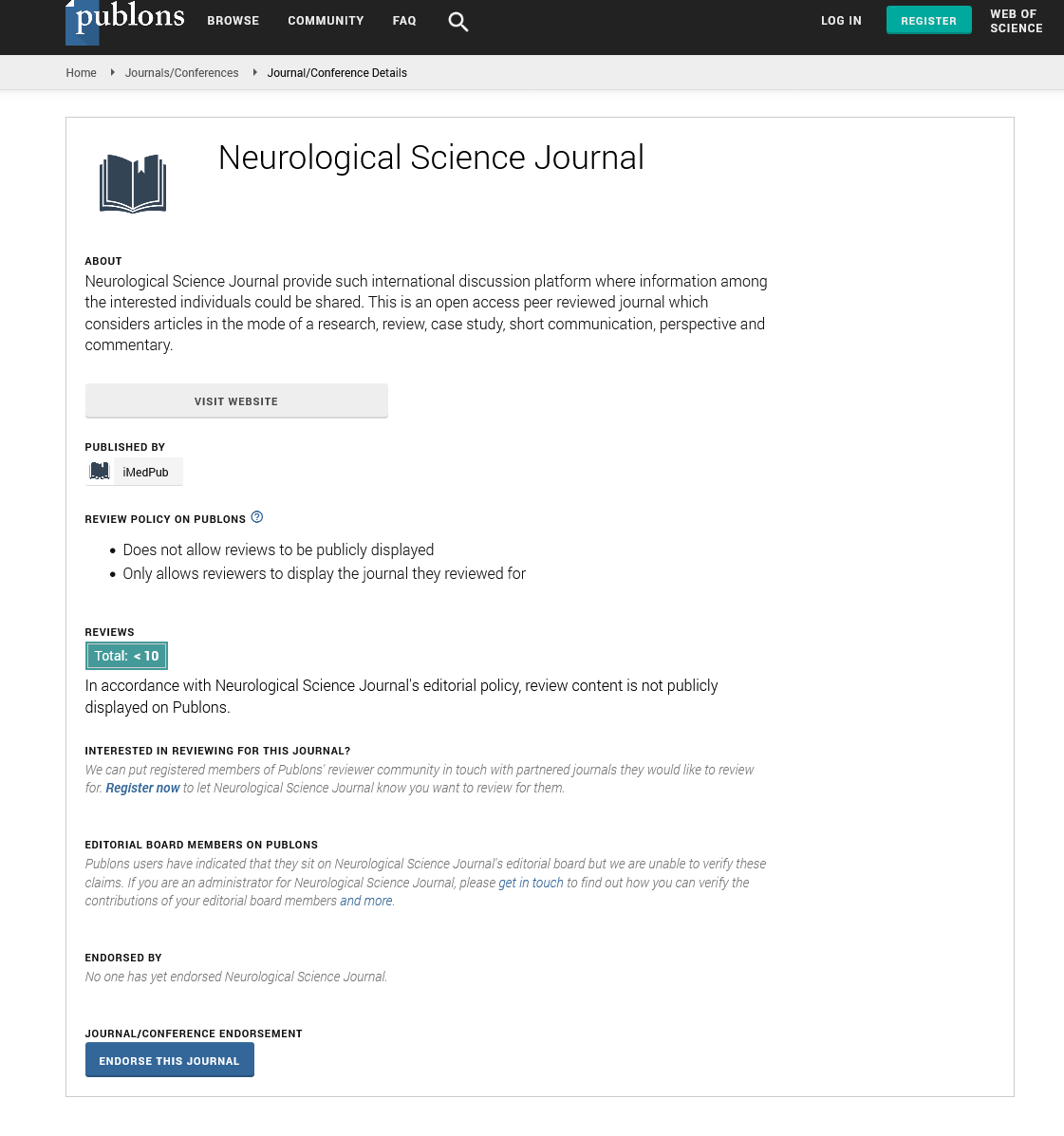Abstract
Managing Adult ADHD: Comparing non-pharmacological treatments and pharmacological treatments for symptom management - Amanda Lanceleve - Massachusetts College of Pharmacy and Health Sciences, USA
Attention deficit hyperactivity disorder (ADHD) is a neuro-developmental disorder with pervasive and impairing symptoms of inattention, hyperactivity and impulsivity which effects academic and social functioning. The prevalence of ADHD in adults is estimated at 2.8%. An adult with ADHD has a higher probability of having comorbidities that contraindicate the use of commonly used ADHD medications know as stimulants. This study is looking at the comparison on medicinal treatments and non-pharmacological therapies and whether effective symptom control can be managed without the use of medicine. All participants were required to be over the age of 18 and provided written consent prior to the start of the study. Studies focusing their research on medicinal effects whether it was the exclusive treatment or being used in conjunction with non-pharmacological therapies the participants were required to be stable on their current dose of medication. The studies that were focusing on the non-pharmacological therapies required participants to be either drug naïve or never having been on ADHD medication, or been off ADHD medications for six months prior to the start of the study. Mindfulness, cognitive behavioral therapy (CBT), and strength-based coaching are some of the non-pharmacological therapies used. Randomized controlled clinical trials, self-rated scales, and pre and post tests were some of methods used to collect data for the studies. Overall improvements in ADHD core symptoms were achieved with the use of non-pharmacological therapies. Some limitations reported are that some of the treatments are new with little background research but had promising results prompting further research.
Introduction:
Attention deficit hyperactivity disorder (ADHD) is one of the most commonly diagnosed psychiatric disorders in children and adolescents. Recent estimates suggest that the ADHD affects about 3–7% of young people worldwide producing considerable impact on health services and the community. ADHD is a childhood-onset disorder characterized by a persistent pattern of symptoms of developmentally inappropriate and impaired inattention and or hyperactivity or impulsivity with difficulties often continuing into adulthood. The diagnosis of the disorder also requires the presence of symptoms across more than one setting. The symptoms needed for the diagnosis result in an academic, social, or occupational impairment.
The management of ADHD has become increasingly complex as new therapies are introduced in clinical practice. The comparative efficacy and safety of pharmacological and non-pharmacological treatments are largely unknown. Mainly because of paucity of head-to-head trials.
Methods:
We performed a systematic review with network meta-analyses. Randomised controlled trials (≥ 3 weeks follow-up). Interventions of the interest were pharmacological (stimulants, non-stimulants, antidepressants, antipsychotics, and other unlicensed drugs, psychological (behavioural, cognitive training and neurofeedback) and complementary and alternative medicine (dietary therapy, fatty acids, amino acids, minerals, herbal therapy, homeopathy, and physical activity). The primary outcomes were efficacy and acceptability. Secondary outcomes included discontinuation due to adverse events, as well as serious adverse events and specific adverse events. Random-effects Bayesian network meta-analyses were conducted to obtain estimates as odds ratios (ORs) with 95% credibility intervals. We analysed interventions by class and individually. There are 190 randomised trials (52 different interventions grouped in 32 therapeutic classes) that enrolled 26114 participants with ADHD were included in complex networks. At the class level behavioural therapy (alone or in combination with stimulants), stimulants, and non-stimulant were seemed significantly more efficacious than the placebo.
Results:
The studies that were focusing on the non-pharmacological therapies required participants to be either drug naïve or never having been on ADHD medication, or been off ADHD medications for 6 months prior to the start of the study. Mindfulness, cognitive behavioral therapy (CBT), and strength-based coaching are some of the non-pharmacological therapies used. Randomized controlled clinical trials, self-rated scales, and pre and post tests were some of methods used to collect data for the studies. Overall improvements in ADHD core symptoms were achieved with the use of non-pharmacological therapies. Some limitations reported are that some of the treatments are new with little background research but had promising results prompting further research.
Author(s): Amanda Lanceleve
Abstract | PDF
Share This Article
Google Scholar citation report
Citations : 11
Neurological Science Journal received 11 citations as per Google Scholar report
Neurological Science Journal peer review process verified at publons
Abstracted/Indexed in
- Google Scholar
- Publons
Open Access Journals
- Aquaculture & Veterinary Science
- Chemistry & Chemical Sciences
- Clinical Sciences
- Engineering
- General Science
- Genetics & Molecular Biology
- Health Care & Nursing
- Immunology & Microbiology
- Materials Science
- Mathematics & Physics
- Medical Sciences
- Neurology & Psychiatry
- Oncology & Cancer Science
- Pharmaceutical Sciences
